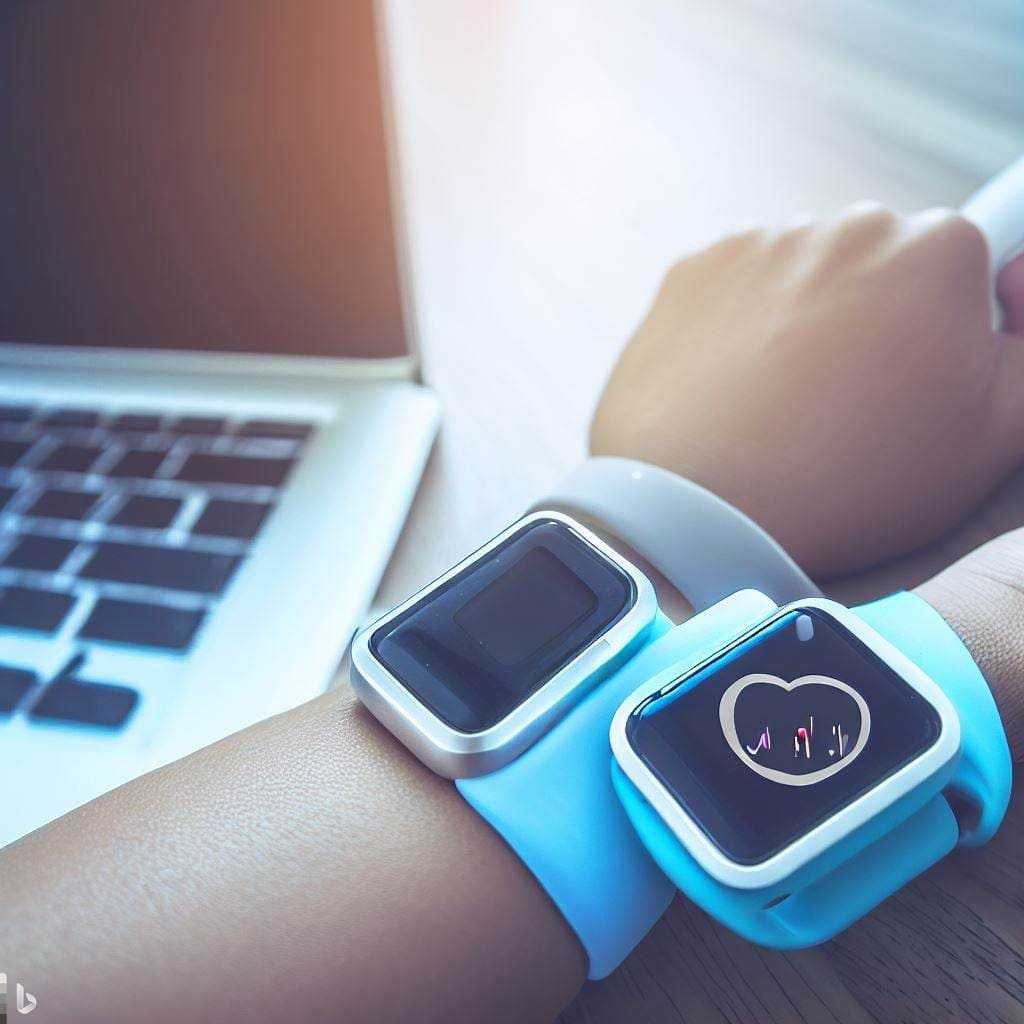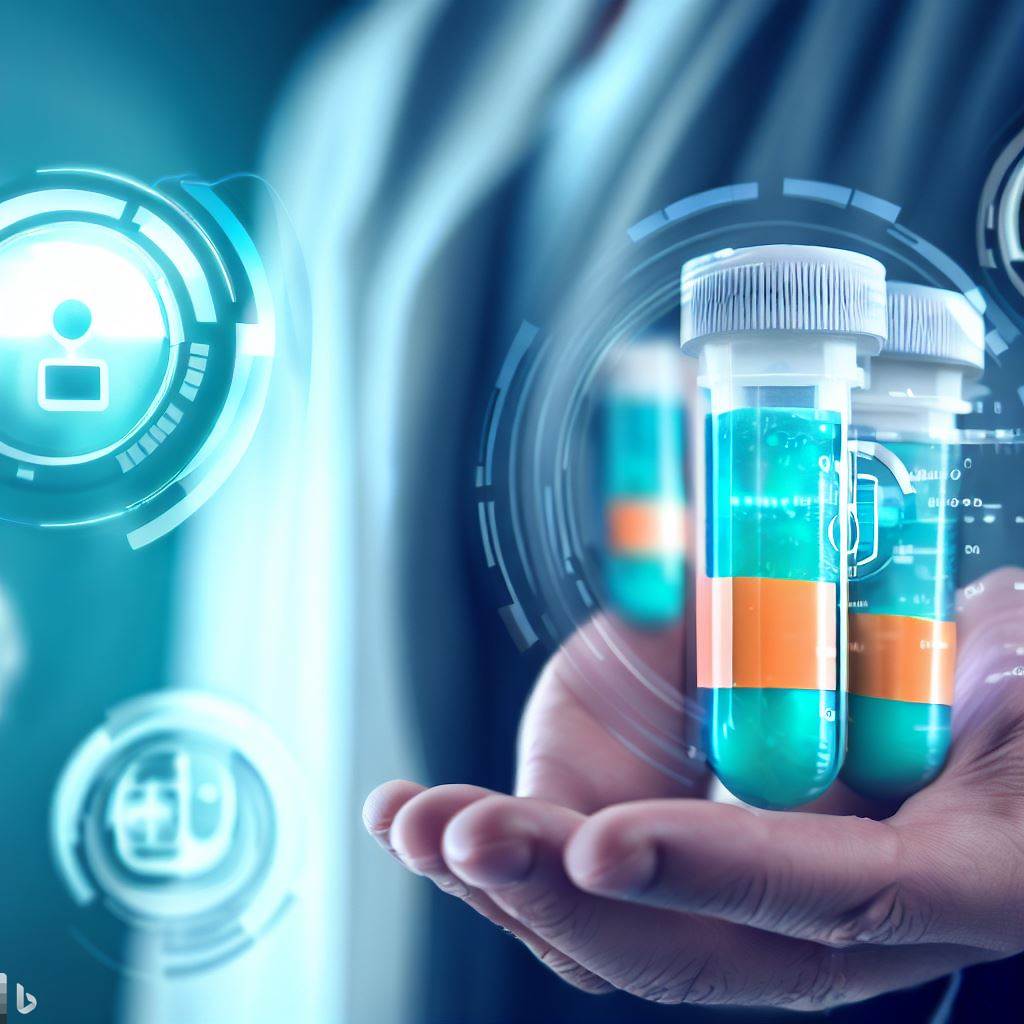In this technology-driven era, the intersection of health and innovation has given rise to groundbreaking advancements that are reshaping the way we approach wellness. From smart wearables to telemedicine, health gurus around the world can’t stop raving about the latest tech marvels that are transforming the landscape of healthcare. In this comprehensive article, we will explore the top tech trends that health experts are buzzing about, highlighting how they are redefining our understanding of well-being and revolutionizing healthcare delivery.
The Tech Health Gurus Can’t Stop Talking About
1. Wearable Health Trackers: The Key to Personalized Wellness

Wearable health trackers have become the cornerstone of modern health monitoring, providing real-time insights into our physical activity, heart rate, sleep patterns, and more. With devices like smartwatches, fitness bands, and even smart clothing, individuals can proactively take charge of their health and fitness routines. These wearables are equipped with LSI keywords like “biometric data,” “activity tracking,” and “health analytics.”
2. AI-Powered Healthcare Diagnostics: Advancing Precision Medicine
The integration of Artificial Intelligence (AI) in healthcare diagnostics is a game-changer. AI algorithms can analyze vast amounts of medical data, enabling accurate and early detection of diseases. Through machine learning and natural language processing, AI can identify patterns that often go unnoticed by human physicians, facilitating precision medicine and improving patient outcomes.
3. Telemedicine: Healthcare at Your Fingertips
Telemedicine has revolutionized the way medical services are delivered. Through video consultations and virtual healthcare platforms, patients can now access expert medical advice from the comfort of their homes. This LSI keyword-rich technology eliminates geographical barriers and enhances healthcare accessibility, making it a go-to solution for health gurus worldwide.
4. Virtual Reality for Pain Management: A Breakthrough Therapy
Virtual Reality (VR) is emerging as a powerful tool for managing pain and mental health conditions. By immersing individuals in virtual environments, VR distracts the brain from pain, reduces anxiety, and enhances relaxation. Health experts are praising VR’s potential to complement traditional therapies and improve overall patient well-being.
5. Genome Sequencing: Unlocking Personalized Healthcare
The advent of affordable genome sequencing has opened doors to personalized medicine. By analyzing an individual’s genetic makeup, health professionals can tailor treatments based on a person’s unique genetic profile. This breakthrough technology is transforming disease prevention and treatment strategies and is highly sought-after by health enthusiasts.
6. Blockchain in Healthcare: Enhancing Data Security
Blockchain technology has found its way into healthcare, offering unparalleled data security and integrity. Health gurus recognize the potential of blockchain in maintaining patient records, managing clinical trials, and safeguarding sensitive medical information from cyber threats.
7. IoT-Enabled Smart Pill Bottles: Ensuring Medication Adherence

Smart pill bottles integrated with Internet of Things (IoT) capabilities are addressing the issue of medication non-adherence. These bottles send reminders to patients to take their medications, track consumption patterns, and even alert healthcare providers if a dosage is missed. This technology is gaining immense popularity among health-conscious individuals.
8. Robotic-Assisted Surgery: Precision and Efficiency Combined
Robotic-assisted surgery has transformed the landscape of surgical procedures. With robotic systems capable of executing precise movements, surgeons can enhance their skills and perform complex surgeries with greater efficiency. This technology promises reduced recovery times and improved patient outcomes.
9. 5G Connectivity in Healthcare: Paving the Way for Telehealth
The rollout of 5G technology is set to revolutionize telehealth services. With lightning-fast internet connectivity and low latency, 5G enables seamless video consultations and data transmission between healthcare providers and patients. Health gurus are enthusiastic about the potential of 5G in expanding telehealth capabilities.
10. Nanotechnology for Drug Delivery: Targeted Therapies
Nanotechnology has opened up new avenues for targeted drug delivery. By engineering nanoparticles that can transport medications to specific cells or tissues, this technology minimizes side effects and maximizes treatment efficacy. Health experts anticipate its widespread application in various medical fields. Nanotechnology is one of the key aspects that tech health gurus can’t ignore.
11. Augmented Reality in Medical Training: Lifelike Simulations
Augmented Reality (AR) is enriching medical training by providing lifelike simulations for aspiring healthcare professionals. From anatomy lessons to surgical simulations, AR enhances learning experiences, allowing trainees to practice in a risk-free environment.
12. Bioelectronic Medicine: Hacking Neural Signals
Bioelectronic medicine is an exciting field that involves interfacing with the body’s neural signals to treat a range of conditions, including chronic pain and neurological disorders. Health gurus marvel at the potential of these innovative therapies that could reduce reliance on pharmaceutical drugs.
13. 3D Printing of Medical Devices: Customization and Accessibility
3D printing technology has enabled the creation of customized medical devices, prosthetics, and implants. This breakthrough has significantly improved patient outcomes by providing tailored solutions and enhancing accessibility to medical care.
14. Smart Contact Lenses: Vision and Beyond
Smart contact lenses are taking eye care to the next level. Equipped with sensors, these lenses can monitor glucose levels in tears, aiding in the management of diabetes. Additionally, they hold promise for augmented reality applications, making them an area of fascination for health enthusiasts.
15. Internet of Medical Things (IoMT): A Connected Healthcare Ecosystem
The Internet of Medical Things (IoMT) refers to interconnected medical devices and software systems. IoMT facilitates data exchange, remote monitoring, and seamless coordination between healthcare providers, leading to more efficient and personalized patient care.
16. Cybersecurity in Healthcare: Protecting Digital Assets
As healthcare becomes increasingly digitized, the importance of cybersecurity cannot be overstated. Health gurus recognize the significance of robust cybersecurity measures to safeguard sensitive medical data from cyber threats and breaches.
17. Exergaming: Fitness Meets Entertainment
Exergaming, a fusion of exercise and gaming, has gained traction among health-conscious individuals. By combining physical activity with interactive games, exergaming offers an enjoyable way to stay fit and motivated.
18. AI-Driven Mental Health Apps: Enhancing Emotional Well-being
AI-powered mental health apps are empowering individuals to take control of their emotional well-being. With personalized insights and therapeutic interventions, these apps support users in managing stress, anxiety, and other mental health challenges.
19. Clean Air Tech: Breathing Easy Indoors
Clean air technology is gaining popularity as health experts emphasize the importance of indoor air quality. Innovations like air purifiers and smart ventilation systems help create healthier indoor environments, benefiting respiratory health.
20. Precision Nutrition: Tailoring Diets to Individuals
Precision nutrition utilizes data-driven insights to design personalized diets based on an individual’s genetic makeup, lifestyle, and health goals. Health gurus see this approach as a key factor in optimizing nutrition and overall well-being.
21. Bioprinting: Building Human Tissues and Organs
Bioprinting is pushing the boundaries of regenerative medicine by creating functional human tissues and organs using 3D printing technology. This groundbreaking innovation holds the potential to revolutionize transplantation and tissue engineering.
22. Brain-Computer Interfaces: Merging Minds and Machines
Brain-computer interfaces (BCIs) allow direct communication between the brain and external devices, opening up new possibilities in healthcare. From assisting patients with paralysis to enhancing cognitive abilities, BCIs hold immense promise.
23. Autonomous Healthcare Robots: Transforming Patient Care
Autonomous robots are making their mark in healthcare settings, performing tasks such as medication delivery, patient monitoring, and disinfection. Health gurus admire their efficiency in enhancing patient care and reducing the burden on healthcare professionals.
24. Quantum Computing in Medical Research: Accelerating Discoveries
Quantum computing’s unparalleled processing power has the potential to revolutionize medical research. By simulating complex biological systems and drug interactions, quantum computing accelerates the pace of scientific discoveries.
25. Biometric Authentication in Healthcare: Securing Patient Data
Biometric authentication is bolstering data security in healthcare systems. Tech health gurus are often indulging in conversation about biometric solutions. From fingerprint scans to facial recognition, these measures ensure that only authorized personnel can access sensitive patient information.
Final Thoughts
The tech health gurus can’t stop talking about the myriad advancements that are reshaping the healthcare landscape. From wearable health trackers to quantum computing, each innovation holds the promise of improving well-being, delivering more personalized care, and transforming medical research. As these technologies continue to evolve, they will undoubtedly play a crucial role in shaping the future of healthcare and improving the lives of countless individuals worldwide.
Frequently Asked Questions
What makes wearable health trackers so popular among health enthusiasts?
Wearable health trackers offer real-time monitoring and data insights, empowering individuals to proactively manage their health and fitness routines. They provide valuable information on physical activity, heart rate, and sleep patterns, encouraging healthier lifestyle choices.
How does AI enhance precision medicine in healthcare diagnostics?
AI analyzes vast amounts of medical data, identifying patterns and correlations that aid in early disease detection and personalized treatment plans. It complements the expertise of healthcare professionals, leading to better patient outcomes.
Can telemedicine truly replace in-person medical consultations?
While telemedicine cannot replace all in-person consultations, it has proven to be a valuable supplement to traditional healthcare. It enhances accessibility to medical services, particularly for remote or underserved populations.
What potential does blockchain hold in healthcare?
Blockchain ensures the security and integrity of medical data, reducing the risk of data breaches and unauthorized access. It also streamlines processes like medical record-keeping and supply chain management.
How does 5G technology improve telehealth services?
5G’s high-speed and low-latency connectivity enable seamless video consultations and data transmission, ensuring smoother telehealth experiences for both patients and healthcare providers.
What are the benefits of nanotechnology in drug delivery?
Nanotechnology enables targeted drug delivery, minimizing side effects and increasing treatment efficacy. It opens new possibilities for personalized medicine and disease management.
